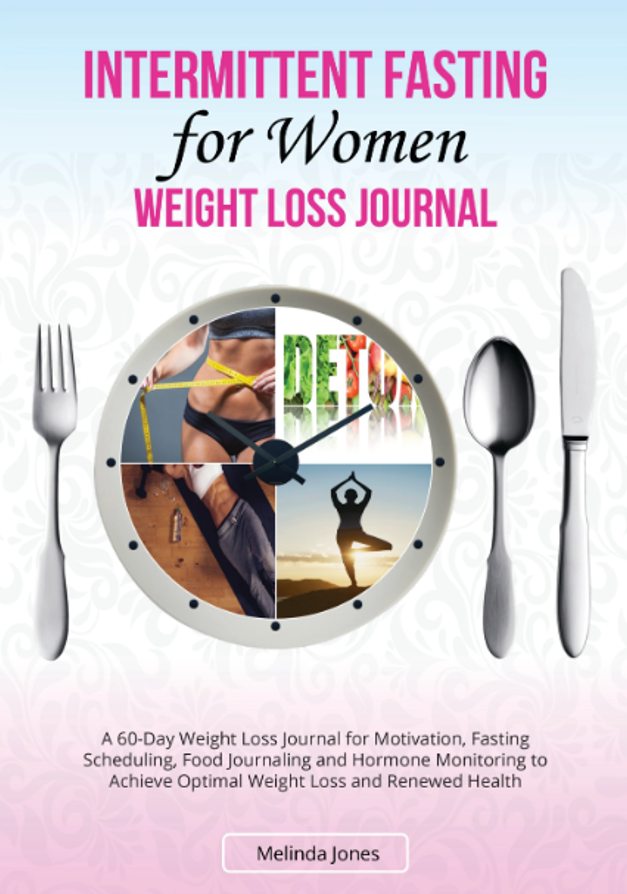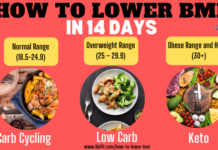Intermittent fasting is one of the easiest most popular weight loss diets. This simple way of dieting has proven to boost metabolism, trigger weight loss, and possibly promote longevity. Despite all the claims, only a handful of practitioners manage to get away with a full spectrum of benefits offered by intermittent fasting.
So how can you reap all the benefits of intermittent fasting? Follow these ten rules.
Top 10 Rules for Intermittent Fasting
If you are new to intermittent fasting or if you have been practicing intermittent fasting and it is not quite working out for you, follow these 10 rules to make sure you are on the right track.
1. Start Slow: Try Crescendo Fasting
Crescendo fasting requires you to fast a few days a week instead of every day. By fasting this way, you can slowly introduce your body to fasting to ensure you remain dedicated to it.
The basic method is to fast twice two-three times per week on alternate days for 12 – 16 hours. This type of fasting has a 12-16 hour “fasting window” and a 8-12 hour “feeding window.” This approach to fasting is much easier to walk into. An easy way to start is to just simply skip breakfast.
When fasting is approached in this way, you can loose more fat and gain lot of energy at the same time. Also, crescendo fasting is safer, more sustainable, and much less stress on your body.
Learn more about the details of crescendo fasting here:
Easily Begin Intermittent Fasting with Crescendo Fasting
2. Restrict Portion Sizes
If you are already limiting your meals to 12 hours a day but with no results, what can you do? Consider restricting your portion size. Most of the experts suggest trimming down your daily food intake to two meals per day in order to observe the full effects of intermittent fasting.
This rule is particularly important for overweight individuals or for those who are obese because such people tend to overeat when they break or end their fast. So, pay attention to your portion size and start restricting your calories in order to experience rapid weight loss.
3. Choose an Appropriate Eating Window
Remember that everyone has different needs and schedules, so there is no specific eating window that works perfectly for everyone. People who workout every morning prefer going to bed empty stomach whereas others cannot sleep without having a proper dinner.
So instead of blindly following others, consider making an individual schedule. If you like enjoying dinner with family, you may adjust your eating window from 12 pm to 8 pm. But if you are someone who cannot kickstart the day without breakfast, the eating window can be from 8 am to 4 pm.
Choose what works best for you and stick to it wholeheartedly.
4. Try a Feeding Window of 12 Hours
While some people claim a 24-hour fast works perfectly for them, experts are not in favor of such an aggressive approach. It is generally advised to abstain from longer periods of fasting on a regular basis.
Why?
According to the experts, restricting your food intake to six hours on a daily basis may increase the risk of gallstone formation. This ultimately increases the possibility of complications, even the risk of gallbladder removal.
Studies have also proven that fasting for longer periods of time can particularly increase the risk of gallstone formation in women, irrespective of their weight. [2]
Maintaining a feeding window of 12 hours per day (no less than 8 hours) is generally considered safe for health and can trigger effective fat loss.
5. Eat Protein-rich Meals
One of the major side effects of alternate day fasting is that it can drastically affect your body muscles, sometimes leading to muscle wasting. To compensate for this, try including more protein in your meals.
Eating protein-rich meals will not only maintain your muscle mass but may also improve appetite control. Foods like eggs, chicken, oats, and nuts are some healthy options to include in your everyday meals.
6. Drink Lots of Water
Drinking water is something that must be mindful of throughout the day. Make sure you drink a lot of water during your fasting window. This is particularly important for people who have just started following intermittent fasting.
In addition to water, you may also have black coffee or unsweetened tea. Avoid adding any milk or sweeteners to your drinks as they may break your fast.
7. Don’t Force Yourself to Workout Fasted
A lot of people love fasted workouts. They feel more energized and feel like they can give more attention to their training sessions in a fasting state. However, this may not be something that everyone is able to do. Some people prefer adjusting their eating window in a way that allows them to eat before working out. This is perfectly okay.
Whatever you decide upon, remember to work out only when you are comfortable. This is important to ensure that you make it safely through the workout session.
Remember that fasted workouts are not required to experience the health benefits of intermittent fasting. It is something that’s optional and up to you to decide if you want to do it or not.
8. Keep Yourself Busy During Fast
At the start of you an intermittent fasting journey, it is often awkward not eating. This is largely due to long term eating habits and schedules. You may realize that most of the time, you are eating out of habit instead of need.
So to make sure that you do not succumb to the unnecessary temptations of eating out of habit, remember to keep yourself busy on the fasting days. If you are not working, consider finding a hobby just to keep your mind occupied. Read a book, visit a friend, or take a stroll outside to keep your mind off eating.
9. Take BCAAs
Fasting for long hours and skipping meals during intermittent fasting may lead to muscle loss. The only way to avoid this problem is by taking BCAAs.
Branched-chain amino acids (BCAAs) can be extremely helpful for people following intermittent fasting. These proteins enter into your bloodstream and help your body build muscle tissue.
Moreover, BCAAs have the ability to bypass the degradation step in the liver and enter directly into the blood. Therefore, they can be a great source for obtaining instant energy without actually eating anything.
10. Stay Consistent
Starting an intermittent fasting diet is not easy. While your body is becoming acclimated to fating you may dizzy, experience fatigue from low blood sugar, and other minor issues. While these things typically pass after the first week of fasting, it can be tough. You may find yourself slipping up and eating during the fasting window. But remember that it’s okay.
Just stay consistent and keep yourself on the right track. It takes time for your body to get used to intermittent fasting and mistakes happen until that time comes. One way to stay consistent is to use a journal. Try Libifit’s 60-day intermittent fasting journal for women.
Click on the image below to grab this now from Amazon.

Intermittent fasting can help you to lose a significant amount of weight, and improve your overall health. Follow these 10 rules and hang in there. Renewed health and weight loss is just around the corner.








































